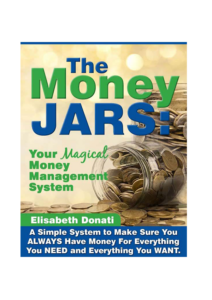When that magical 13th birthday happens and your ‘child’ transforms into a ‘teen’, everything seems to change. At least, we make up that it does. Nothing changes, however, except the continual growing up that our children (hopefully) inevitably do.
One this is for sure though. The earlier you expose them to information (any information), the quicker they learn it AND the easier it is for them to accept that information as matter of fact. Kinda like brushing their teeth!
Money, and learning to make, use and invest it wisely, is one of those subjects that are best taught early but, because so many parents (for so many reasons) do not know how to or just don’t expose their children to the financial basics they need, sometimes you have to take a different route to the same goal.
The goal: being financially savvy adults.
The route: here’s ONE suggestion:
PAY YOUR CHILDREN TO READ FINANCIAL BOOKS!
 Yup, you read that right and I’ve talked about this before. Most children love money because they understand that it buys stuff, ‘piddlyjunk’ to be specific (stuff that either goes DOWN in value or has NO value once purchased). What they don’t get intrinsically, unless it’s modeled for them, are the saving and investing pieces.
Yup, you read that right and I’ve talked about this before. Most children love money because they understand that it buys stuff, ‘piddlyjunk’ to be specific (stuff that either goes DOWN in value or has NO value once purchased). What they don’t get intrinsically, unless it’s modeled for them, are the saving and investing pieces.
So if you’ve realized you haven’t done the best job in the financial parenting department, it’s time to get on the ball. Go buy (or check out from the library) a few financial books. Here are a few I always recommend:
- Secrets of the Millionaire Mind by T. Harv Eker
- Rich Dad, Poor Dad and Rich Dad, Poor Dad for Teens by Robert Kiyosaki
- The New Totally Awesome Money Books for Kids by Arthur Bochner, Rose Bochner, and Adriane G. Berg (available on Amazon)
Once you have a book or two ready (so they can choose), here’s what you do.
First, open up the conversation by relating money to something they like. These are called Enrolling Questions and I talk about them in great detail in The Ultimate Allowance. They sound like, “So, how would you like to learn how to have enough money to always have what you need and want?” or “I know you like to have a lot of freedom. Learning how to have more than enough money in your life is the key to that freedom. Would you like to learn how?” Stuff like that. The point is to get them interested.
Next, let him/her know that you have an opportunity to learn and earn. Explain that you’re going to supply a number of money books (it’s great if YOU read them first by the way so you know what’s in them) and for every book they read, you’ll pay them _______. I suggest at least $25 (it’s worth it!) but you can modify to fit your budget. Once they finish the book, they have to do a three page (at least) report on the basic information in the book and then, (here’s my favorite part) have an open conversation with you about how they can apply the information to their lives now and in the future.
Now here’s where it gets challenging on your part. DO NOT start preaching to them or telling them, “If only I had ______ (you fill in the blank).” You want them to be open to having these amazing conversations about money with you. If they ask about your experience or you want to share, ASK if they want to hear about it first.
One of the basic premises behind Accelerated Learning (how we teach all of our programs) is “Ask, Don’t Tell.” In other words, assume they know the answer already and just explore what they know before you go trying to tell them anything. YOU don’t like to be told stuff. Neither do your kids.
So that’s it. Pick a book. Introduce the opportunity. Let them read, do a book report and have a great conversation and then pay ’em. I promise you it will be one of the best investment decisions you ever make.
Just something to think about.




Some good ideas here, but the idea of paying kids to read these books could be problematic, if your goal is for your child to be self-motivated to read even more financial books. There’s lots of research showing that if you pay someone to do something, they start focusing on money as their reason to do it. Than can overshadow any other motivations. So then they’ll only read these books when they’re paid to do so. Better just to try hard to entice the child with good reasons to read such books!
Kathy Seal
Kathy, thanks for the comment. In most cases, I completely agree. But in the case of ‘hoping’ that your child finds some intrinsic motivation to read books on how to handle and invest money, I am certain that the risk of having them only read a finance book because ‘there’s money in it’, is worth the benefits. After all, if you think about it, the more books on investing you read, the more you ARE paid to read them:-). Thanks again. Elisabeth
This blog is impressive. It might be a good idea to use lighter colors and improve on the design in order to increase your visitor retention
Excellent article, I am a huge fan of this site, keep on posting that great content, and I will be a regular for a very long time.